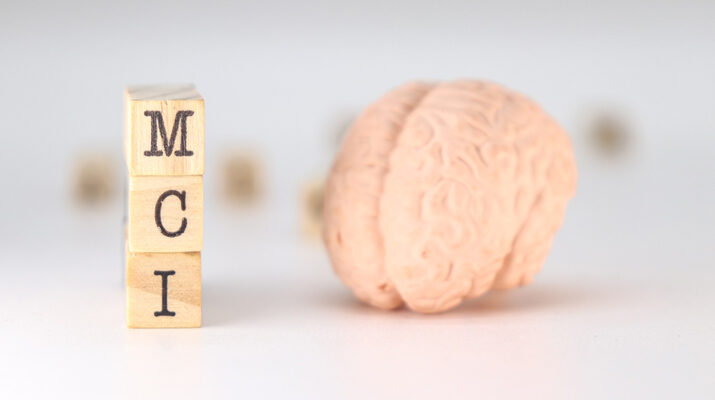By Barbara Pierce
We’ve all walked into a room, then forgot why we’re there.
Or can’t remember the name of a person we should know.
These are normal signs of aging.
But if such events begin to happen more frequently or become worse, it could be something called mild cognitive impairment, often known as MCI.
If you’ve never heard of mild cognitive impairment, you’re not alone. Most people haven’t heard of it or know little about it. And yet it affects many older people.
MCI is a state between normal aging and dementia. It’s a condition where a person experiences a noticeable decline in memory. While people with MCI can still perform most daily activities independently, they may have more difficulty with certain tasks or have noticeable memory lapses. That’s how the Alzheimer’s Association defines MCI.
MCI causes cognitive changes that are serious enough to be noticed by the person affected and by family members and friends but do not affect the individual’s ability to carry out everyday activities.
The symptoms of MCI are not as severe as those of Alzheimer’s disease or a related dementia. People with MCI can usually take care of themselves and carry out normal daily activities.
“MCI is a general term,” said Katrina Kapustay, director of care and support, Alzheimer’s Association, Central New York Chapter. “MCI is diagnosed when there is enough memory loss that it interrupts daily life.”
“This means memory loss, not measurable memory change,” she added.
Memory changes are normal, mild lapses, such as misplacing keys or forgetting where we parked our car — things that don’t significantly impact daily life. However, memory loss is a more severe, continuous decline in memory that disrupts daily life.
“A person with MCI won’t have other symptoms like impaired judgment,” she said.
Impaired judgment means one doesn’t have the ability to make sound decisions, think clearly or evaluate situations rationally.
Does a diagnosis of MCI lead to dementia?
“No, MCI doesn’t necessarily lead to dementia,” she said. “However, it can be a precursor to Alzheimer’s disease. A person diagnosed with MCI is at increased risk for developing Alzheimer’s.”
People with MCI do have a greater risk of developing Alzheimer’s or a related dementia. Estimates vary as to how many people who have MCI will develop dementia. Roughly one to two out of 10 people aged 65 or older with MCI are estimated to develop dementia over a one-year period, according to Alzheimer’s.gov. However, in many cases, the symptoms of MCI stay the same or even improve.
“MCI could go away and not be detrimental,” said Kapustay.
It could go away. That’s certainly good news for those who have received this diagnosis.
MCI could go away, depending on the underlying cause. MCI can be caused by a reversible condition like stress, depression, thyroid deficiency or a viral infection; some medications can cause significant memory loss. For those with a treatable underlying cause, improvement is possible.
Because MCI could be caused by a medical condition that could be reversed, see your doctor if you have concerns about symptoms. An early diagnosis means you can be treated sooner and many new treatments work best in the earliest stages of the disease. Getting a diagnosis gives you and your family the best chance to prepare for the future.
Your doctor will make a diagnosis based on a careful medical history, a physical examination, laboratory tests and any changes in your memory, thinking, day-to-day functioning and behavior.
“There are many new medications coming out,” Kapustay said. “Though no medication cures MCI or any dementia, some medications give a better quality of life and mask symptoms.”
Numerous studies have shown that healthy lifestyle changes like regular exercise, a healthy diet, social connections and mentally stimulating activities can also help improve or reverse MCI. Social engagement was the most important factor in predicting MCI. A high-fat diet may exacerbate MCI progression.
The causes of MCI are not yet completely understood. Experts believe that many cases — but not all — result from brain changes occurring in the very early stages of Alzheimer’s or other neurodegenerative diseases that cause dementia.
The risk factors most strongly linked to MCI are advancing age, family history of Alzheimer’s or another dementia and conditions that raise risk for cardiovascular disease.
“We’re learning a lot more about MCI and dementia every day,” said Kapustay. “And there’s a lot more to learn.”
More research is needed on the biological changes associated with normal aging, MCI and Alzheimer’s and other dementias to better understand the causes of and risk factors for MCI and the prognosis for those with the condition.
Individuals who have been diagnosed with MCI should be reevaluated every six months to determine if symptoms have progressed.
The Alzheimer’s Association 24/7 Helpline (800-272-3900) is available around the clock, 365 days a year. Through this free service, specialists offer confidential support and resources.

